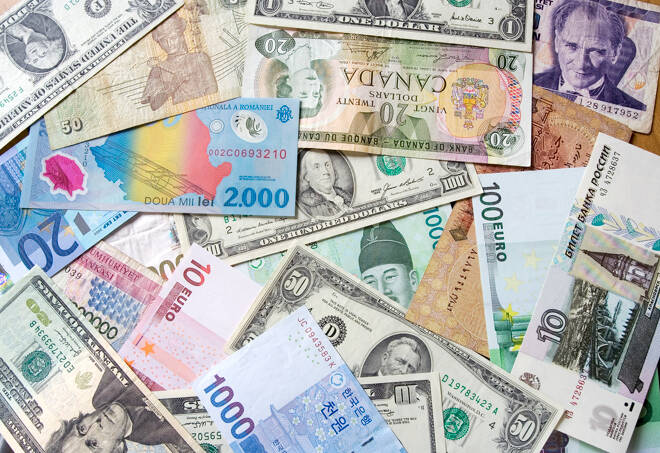Advertisement
Advertisement
Who are the Major Forex Players Behind the Liquidity?
By:
Intro
To be a successful trader, it is important to manage the risk and the volatility. Getting a grasp of these two factors starts with understanding liquidity.
The Forex market is the single largest market in the world not just in terms of average daily turnover and average revenue per trader but also the largest market in terms of participants.
Liquidity: What is It? Where Does It Come From? Why Does It Matter?
Important to the structure of the Forex market is liquidity. Without liquidity, the activity would be chaotic, highlighted by jumps and gaps in prices. A highly liquid market, however, creates a smooth entry and exit transition, making it desirable for all of the players in the market to participate from small speculators to large institutions.
Liquidity isn’t created out of thin air, or by a small trader in the U.S., Europe or Asia. It is generated by a liquidity provider, which is by definition a market broker or institution which behaves as a market maker in a chosen asset class.
Essentially, the liquidity provider acts at both ends of currency transactions. He sells and buys a particular currency at certain prices. When he does this, he is making the market.
Some may be asking, “Why Should I Care About Liquidity?” The answer is greater price stability. Liquidity providers take out a substantial amount of risk and in doing so can be handsomely rewarded because they can see the order flow.
More importantly, they are willing to take the other side of a trade during a volatile trading period, thereby allowing small speculators to manage their risk more efficiently. There are few things worse than being on the wrong side of a trade in an illiquid market.
List of the Major Forex Players
Commercial Banks
- Banks are usually involved in both large quantities of speculative trading and also daily commercial turnover. Some trade in billions of dollars in foreign currencies everyday. Some trade on behalf of clients. Others trade proprietary accounts.
Commercial and investment banks provide bid-ask quotes for all currency pairs they make a market in. They usually offer the tightest spreads for these currency pairs to the biggest and best customers, and often resort to trading the pairs on behalf of their clients, rather than depending on just the bid-ask spreads to make profits.
The major commercial bank liquidity providers include Citibank, Deutsche Bank, Societe Generale, Union Bank of Switzerland and HSBC.
Central Banks
- Central banks play an important role in the Forex market and that role is controlling the supply of different currencies. Besides having to worry about regulating inflation and interest rates, they are also responsible for stabilizing the Forex market when necessary.
Central banks may not be as active as commercial banks, but when there is a dire need such as a financial crisis, they stand ready to intervene if necessary to provide liquidity to their respective nations through money market operations.
Central banks are often approached as a last resort if normal Forex operations are being stressed.
Investment Firms
- Investment management firms commonly manage huge accounts on behalf of their clients and require the exchange of foreign currencies so they have to facilitate these transactions through the use of the foreign exchange market.
Retail Forex Brokers
- This group handles a fraction of the total volume of the entire Forex market that is estimated at between 25 to 50 billion dollars each day or about 2% of the total market volume.
Unless a retail Forex broker has high capital reserves, it cannot trade with the major liquidity providers and have access to all of the perks including tight spreads that come with having huge amounts of capital.
Retail traders including speculators seldom have the need to trade in such huge volumes, unlike institutional traders. Therefore, their access to the Forex market is usually via regulated online Forex brokers, who are the secondary liquidity providers in the market.
Speculators
- These are the risk-taking individuals or private investors who purchase and sell foreign currencies and profit through fluctuations in their prices.
Algorithmic Traders
- High-frequency algorithmic traders or Algo traders have managed to change the landscape of Forex CFD trading. Today’s world of electronic trading and computerized trade-matching has allowed a proliferation of programmed high-frequency traders using among others highly sophisticated pattern recognition analysis to enter the trading arena under the guise of liquidity providers.
Conclusion
Liquidity affects market volatility and, although, volatility can be a friend or foe, a certain level of volatility is necessary for trading opportunities. Illiquidity can lead to wild price swings and unmanageable fluctuations.
To be a successful trader, it is important to manage the risk and the volatility. Getting a grasp of these two factors starts with understanding liquidity.
About the Author
James Hyerczykauthor
James Hyerczyk is a U.S. based seasoned technical analyst and educator with over 40 years of experience in market analysis and trading, specializing in chart patterns and price movement. He is the author of two books on technical analysis and has a background in both futures and stock markets.
Advertisement
Advertisement
Advertisement
Advertisement
Advertisement
